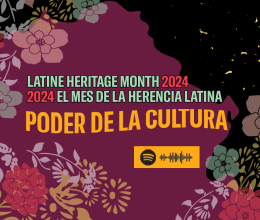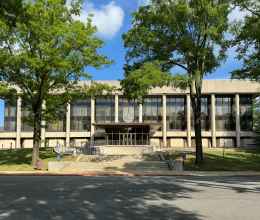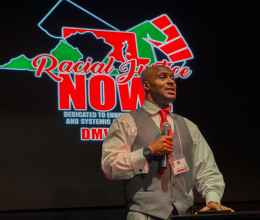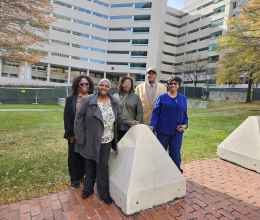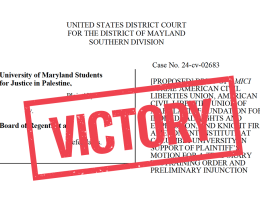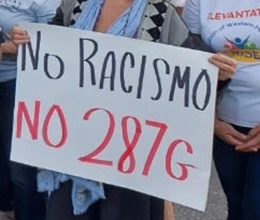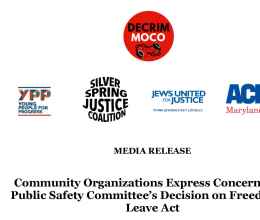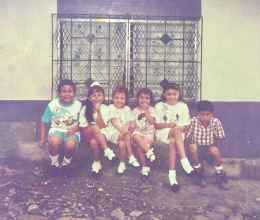
Quotes from Victim Family Members
ANNAPOLIS - Between 2010 and 2014, at least 109 people died in police encounters in Maryland, according to a briefing paper produced by the American Civil Liberties Union (ACLU) of Maryland. These deaths were dispersed throughout 18 different jurisdictions across the state. Other key findings in the briefing paper are that nearly 70 percent of those who died in police encounters were Black, that more than 40 percent of those who died were unarmed, and that police officers were criminally charged in less than two percent of the 109 cases cited by the ACLU. The ACLU compiled the paper after learning that state officials do not track these cases.
"State leaders must act now to send a clear message to families, communities and police that all lives matter and that these deaths are not inevitable," said Sonia Kumar, ACLU Staff Attorney. "We must report and track deaths in police encounters in order to learn the lessons that will prevent these tragedies from recurring."
Between 2013 and early 2014, the ACLU heard from anguished individuals and families across Maryland whose loved ones had died in police encounters. In an effort to help shed more light on the number and geographic reach of civilian deaths in police encounters in Maryland, the ACLU has produced a briefing paper with information compiled from public sources. The organization's research made one thing clear: Outside of the families and communities who have borne the brunt of these losses, the full extent of deaths in police encounters has never been formally acknowledged by public officials in Maryland.
There is no centralized state or federal reporting requirement when people die in police encounters. There are more than 140 state and local law enforcement agencies in Maryland, but no official tracking of how frequently or under what circumstances they are involved in the loss of civilian lives. The scant national data that is available suggests that Maryland has a very high number of police-involved civilian deaths relative to other states. The FBI's 2012 data on "justifiable homicides" by law enforcement (which does not include all deaths at the hands of police) lists Maryland as having the 6th highest number of homicides by police out of 39 states reporting.
Key findings from the ACLU briefing paper:
1. At least 109 people died in police encounters in Maryland between 2010-2014. These deaths were dispersed throughout the state in 17 counties and Baltimore City.
2. Sixty-nine percent of those who died in a police encounter (75 people) were Black. Blacks make up 29 percent of Maryland's population.
3. Five Black people died at the hands of police for every White person who died, when the size of the Black and White populations were taken into account. Put another way, the rate at which Blacks died by a police encounter (deaths per population size) was five times that of Whites.
4. Forty-one percent of those who died (45 people) were not armed with a weapon of any kind.
5. The number of unarmed Blacks who died (36 people) exceeded the total number of all Whites who died (30 people), armed or not.
6. Ten unarmed Black people died for every unarmed White person who died, when the size of the Black and White populations were taken into account. Put another way, the rate at which unarmed Blacks died by a police encounter (deaths per population size) was ten times that of Whites.
7. Thirty-eight percent of those who died (41 people) presented in a way that suggested a possible medical or mental health issue, disability, substance use or similar issue.
8. Seventy-nine percent of those who died (86 people) were killed by police gunfire.
9. Twenty-one percent of those who died (23 people) were not shot; in most of these cases police used handcuffs or other restraints, pepper spray, and/or a taser. Several individuals were killed in the course of a vehicle pursuit.
10. Police officers were criminally charged in less than two percent (2 cases) of the 109 incidents.
QUOTES FROM VICTIM FAMILY MEMBERS
Marion Gray-Hopkins, whose son Gary Hopkins, Jr. died at the age of 19 as a result of an encounter with Prince George's County police on November 27, 1999: "The senseless killing of our loved ones at the hands of law enforcement is occuring in epidemic proportions as clearly indicated in the recent publication of the ACLU report. It nearly took my breath away when I read the report. To see it printed in black and white that there were 109 killings in a 4 year period 2010 - 2014 of which 69% were people of color when people of color are only 29% of the total population in Maryland. Only 2% simply 2 of the officers were criminally charged. Officers have the right to be judge, jury and executioner while being protected from judicial prosecution. The statistics for this very short period clearly indicate reform is needed NOW! Mothers are tired of losing their unarmed children at the hands of the police who are protected by laws that don't protect us. America is tired! Our Maryland Legislators who have the power to make change MUST support the reform if they do not want the blood of additional victims on their hands."
Mildred Fisher, whose son Winfield Carlton Fisher III went to the Salisbury Police Barrack on March 18, 2014 to have a rear tag light inspected and was shot and killed by the Maryland State Police: "I pray justice will be served by making new laws to hold officers accountable for their actions just as civilians have to. They are not above the law, they just need to uphold it."
Chris Brown, whose 17 year-old son Christopher Brown was killed in a police encounter in Baltimore County in 2012: "Our children are being killed. We can't just sit back and do nothing. Life is always worth saving. My son's life might have been saved if someone made sure that police received the right training. We have to learn from what happens in these cases to keep these tragedies from repeating."
Tawanda Jones, whose brother Tyrone West was killed during an encounter with Baltimore City Police officers on July 18, 2013: "All we are asking for is accountability. At the end of the day there are lives being taken every 24 hours and nothing's being done. We don't want this type of pain to happen to another family. That's why we do what we do. This pain never goes away. This doesn't get easier. The only thing we can do is hold police accountable. We need to put things in place to make sure nobody else goes through this. The victims of police brutality aren't here anymore to stand up for themselves. Families from all over the state are coming together to fight for accountability for their loved ones. Killing these bills is killing a chance to rebuild the disconnect between law enforcement officers and the community. We need transparency, accountability, and a connection back to a broken system that is killing us every day."
Oludipe Comfort Olubunmi, whose son, Emmanuel Okutuga, was shot and killed by a Montgomery County police officer on February 19, 2011: "Our family hopes that Emmanuel's death will not be swept under the rug. Accountability is necessary, not only to build trust between law enforcement and the community, but also to bring a sense of justice to the families of those killed, families like mine. I lost my son four years ago, but today the legislature can do the right thing by passing a law to hold police accountable."
# # #
